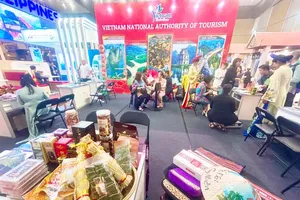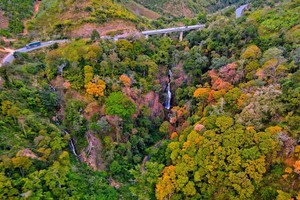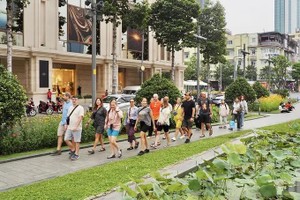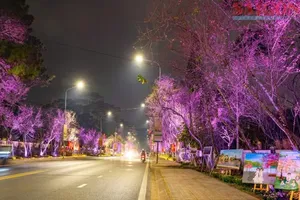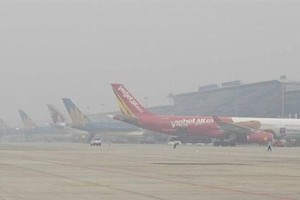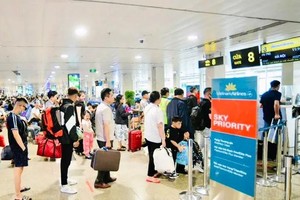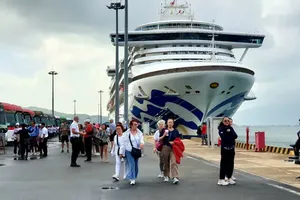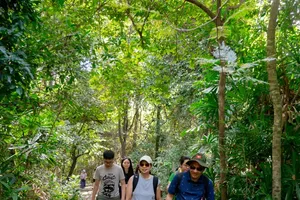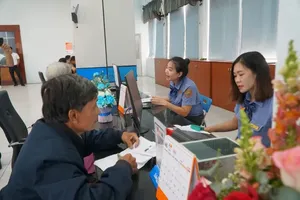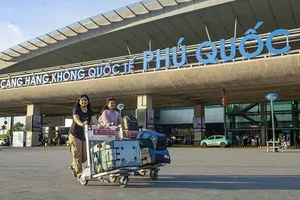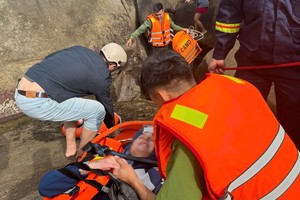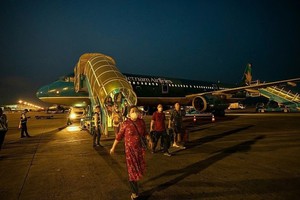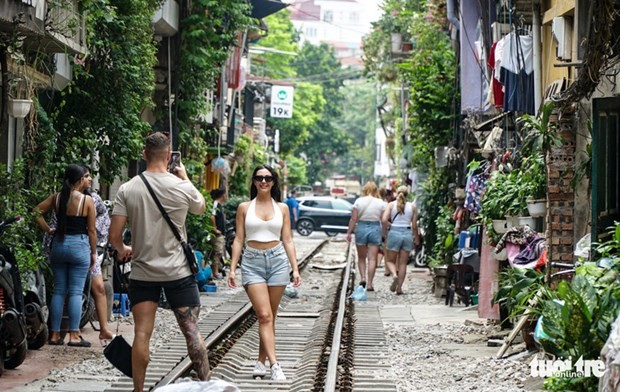 |
Illustrative image. (Photo: tuoitre.vn) |
In lieu of the dangerous train traffic at the site, the Hanoi Department of Tourism said on April 4 that it has asked businesses offering tourism and transport services in the city not to launch tours of the train street, a popular destination for many foreign visitors.
The entry ban to the train street, famous for its makeshift coffee shops along the train track running from Le Duan Street to Phung Hung Street, aims to ensure security and safety for visitors, the department said, urging travel firms to encourage holidaymakers, especially foreigners, not to visit and take photos at the coffee shops.
The department also asked relevant agencies to seriously observe regulations on rail traffic safety and urban order and assigned its investigation force to step up inspections and handling of wrongdoings.
It was reported that many tourists have visited the rail section in Hang Bong ward, with some groups transported to the barrier on Tran Phu Street, causing traffic congestion there, according to the Deputy Director of the department Nguyen Hong Minh.
Hoan Kiem district has repeatedly ordered the closure of coffee shops along the train track and asked local households not to run these businesses at the dangerous site, yet the situation has seen no improvements.
The capital city welcomed some 978,700 foreigners in the first three months of this year, 5.9 times higher than the same period last year, said the municipal Department of Tourism.
The number was part of the 5.9 million visitors coming to the capital city between January and March, a two-fold increase year-on-year.
Hanoi now houses 3,756 lodging facilities totaling 70,218 rooms. The average occupancy rate of the local 1-5 star hotels was estimated at 56.5 percent in the three months, up 37.2 percent year-on-year.
The city has 29 food and beverage, 35 shopping, six entertainment, and one healthcare businesses meeting the standards to serve tourists. Its tourism sector is making efforts to develop traveling routes, including those connecting the downtown area with the Bat Trang pottery craft village and the Huong pagoda in My Duc district with the Tam Chuc – Trang An tourism complex in Ha Nam and Ninh Binh provinces. Night tours have been conducted, and activities on pedestrian streets refreshed.
Hanoi aims to welcome 22 million tourists this year, earning VND77 trillion (US$3.27 billion), increasing by 17.6 percent and 28.2 percent against 2022, respectively.
This year, it focuses on developing package products to stimulate tourism demand through the air transport connection. It has signed tourism development cooperation programs with localities in the southwestern region, the Red River Delta, and the northwestern region.
According to the department, in 2023, the city will concentrate on developing regional linkage products, MICE (meeting, incentive, convention, exhibition) tourism, weekend tourism, urban tourism, sea and island tourism, health care tourism, and educational tourism. The agency will promote the connection among travel businesses, state management units, and tourist destinations to introduce tourism locally.
This year, Vietnam is set to welcome 110 million visitors, including 8 million foreign arrivals. This is a big challenge but also an opportunity for Hanoi tourism to achieve its goals.

